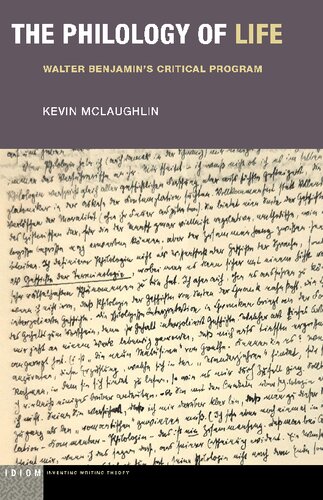

Most ebook files are in PDF format, so you can easily read them using various software such as Foxit Reader or directly on the Google Chrome browser.
Some ebook files are released by publishers in other formats such as .awz, .mobi, .epub, .fb2, etc. You may need to install specific software to read these formats on mobile/PC, such as Calibre.
Please read the tutorial at this link: https://ebookbell.com/faq
We offer FREE conversion to the popular formats you request; however, this may take some time. Therefore, right after payment, please email us, and we will try to provide the service as quickly as possible.
For some exceptional file formats or broken links (if any), please refrain from opening any disputes. Instead, email us first, and we will try to assist within a maximum of 6 hours.
EbookBell Team

5.0
78 reviewsAccording to Benjamin, German literary history in the period roughly following the first World War was part of a wider “crisis of historical experience”―a life crisis to which Lebensphilosophie (philosophy of life) had instructively but insufficiently responded. Benjamin’s literary critical struggle during these years consisted in developing a philology of literary historical experience and of life that is rooted in an encounter with a written image.
The fundamental importance of this “philological” method in Benjamin’s work seems not to have been recognized by his contemporary readers, including Theodor Adorno who considered the approach to be lacking in dialectical rigor. This facet of Benjamin’s work was also elided in the postwar publications of his writings, both in German and English. In recent decades, the publication of a wider range of Benjamin’s writings has made it possible to retrace the outlines of a distinctive philological project that starts to develop in his early literary criticism and that extends into the late studies of Baudelaire and Paris. By bringing this innovative method to light this study proposes “the philology of life” as the key to the critical program of one of the most influential intellectual figures in the humanities.